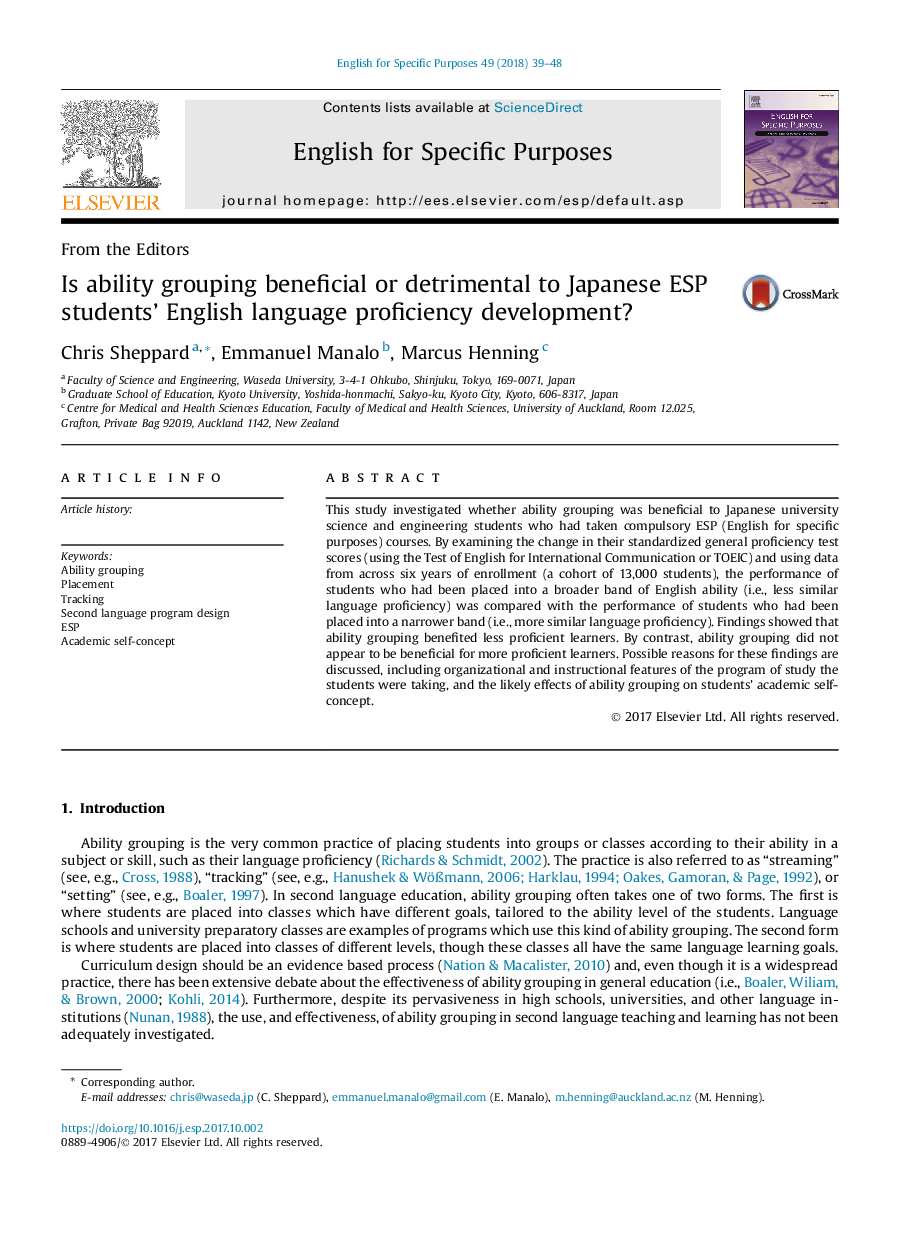| Article ID | Journal | Published Year | Pages | File Type |
|---|---|---|---|---|
| 6841037 | English for Specific Purposes | 2018 | 10 Pages |
Abstract
This study investigated whether ability grouping was beneficial to Japanese university science and engineering students who had taken compulsory ESP (English for specific purposes) courses. By examining the change in their standardized general proficiency test scores (using the Test of English for International Communication or TOEIC) and using data from across six years of enrollment (a cohort of 13,000 students), the performance of students who had been placed into a broader band of English ability (i.e., less similar language proficiency) was compared with the performance of students who had been placed into a narrower band (i.e., more similar language proficiency). Findings showed that ability grouping benefited less proficient learners. By contrast, ability grouping did not appear to be beneficial for more proficient learners. Possible reasons for these findings are discussed, including organizational and instructional features of the program of study the students were taking, and the likely effects of ability grouping on students' academic self-concept.
Related Topics
Social Sciences and Humanities
Arts and Humanities
Language and Linguistics
Authors
Chris Sheppard, Emmanuel Manalo, Marcus Henning,
